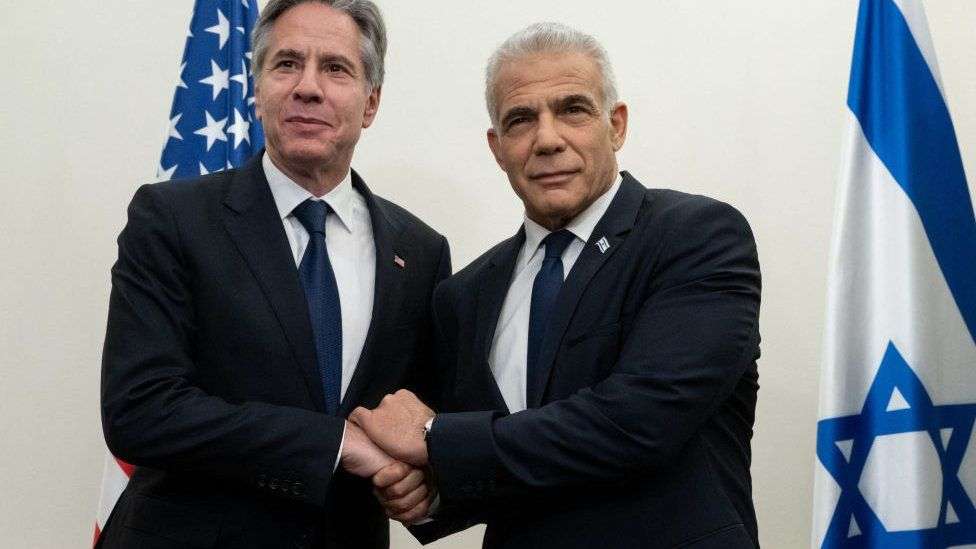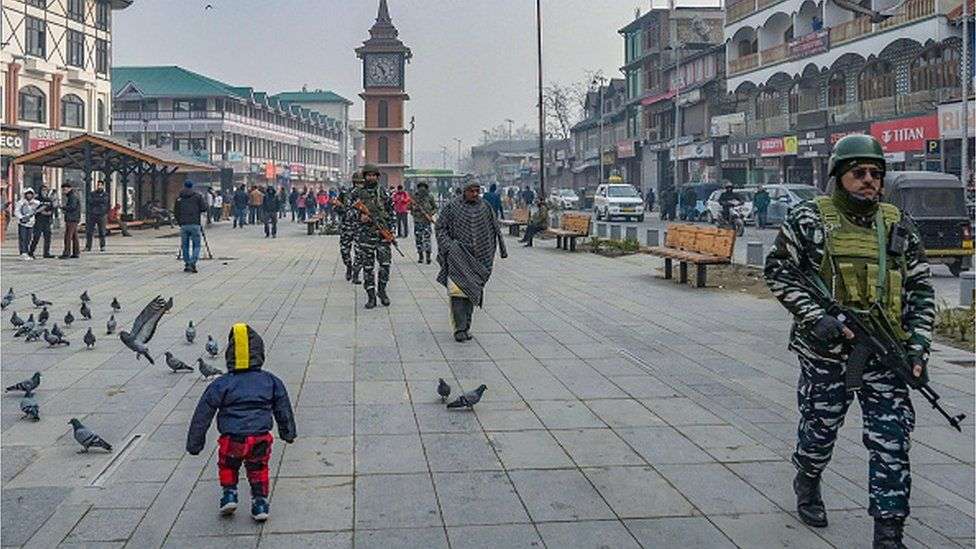US Secretary of State Antony Blinken has clearly laid out benchmarks for the protection of civilians in Israel's war against Hamas in Gaza.
In the strongest and most specific US remarks yet, Mr Blinken said he'd told the Israeli government that it must avoid further mass displacement of Palestinians and damage to critical infrastructure, like hospitals, power stations and water facilities.
He did not, however, appear to set down red lines that would trigger US actions.
The secretary of state travelled to Israel to deliver the message - his fourth visit since the conflict began - at a time when hostilities have been paused by a deal to release hostages captured by Hamas.
Mr Blinken accepted that Israel planned to resume its military operation, but he also "underscored the imperative for the United States that the massive loss of civilian life and displacement of the scale that we saw in northern Gaza not be repeated in the south".
Hamas attacks on Israel on 7 October killed 1,200 people with around 240 others taken hostage. Since then, Gaza's Hamas-run health ministry says Israel has killed more than 14,800 Palestinians in its retaliatory campaign, including about 6,000 children.
Israeli military strikes have hit hospitals and schools and rendered northern Gaza a moonscape of destruction.
The unfolding devastation has shifted the approach of President Joe Biden's administration, from unequivocal support for Israel right after the attack, to a growing emphasis on civilian protection and a focus on alleviating the desperate humanitarian conditions in Gaza.
That evolution has been propelled by anger from Arab allies, and significant dissent to Mr Biden's policies within the administration itself.
Senior officials had been previewing Mr Blinken's message for a more surgical approach when Israel focuses its offensive on southern Gaza, where more than 1.5 million Palestinians have fled to escape bombing in the north.
Further displacement of Palestinians would be "beyond the capacity of any humanitarian support network to cope with", said one.
He clarified that safe zones needed to involve multiple places near UN facilities and shelters, not a single area for the mass relocation of civilians, as initially proposed by the Israeli government.
Mr Blinken also underlined that there must be room to sustain and build on the humanitarian assistance getting into Gaza.
But he avoided a question about whether he'd imposed a timeline for the military operation, stating instead that Israel agreed with the US approach.
He said Washington supported Israel's goal to neutralise the threat posed by Hamas, and highlighted the complexity of such a task when the Palestinian militants are embedded amongst the civilian population.
Earlier this week the administration clarified that it was not prepared to use its ultimate leverage - placing conditions on America's massive military assistance to Israel - which is powering the war.
This is what a dozen or so Democratic senators were told when they questioned whether Israel's use of the weaponry complied with American law, according to one who attended a meeting with the National Security Adviser Jake Sullivan.
The emphasis instead has been for President Biden to use his influence as Israel's strongest supporter to privately push Prime Minister Benjamin Netanyahu on humanitarian issues.
Mr Blinken has been unusually public about this.
The next phase of the war will reveal whether Israel has got the message.








